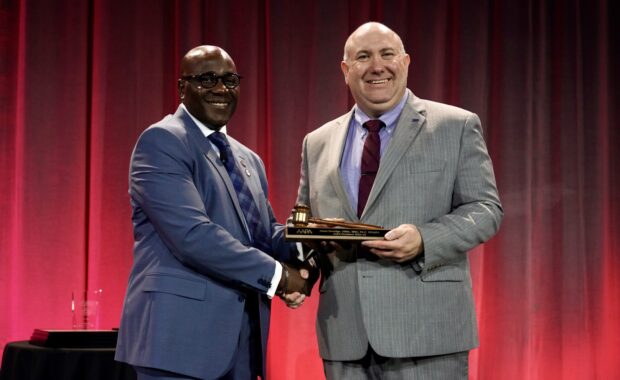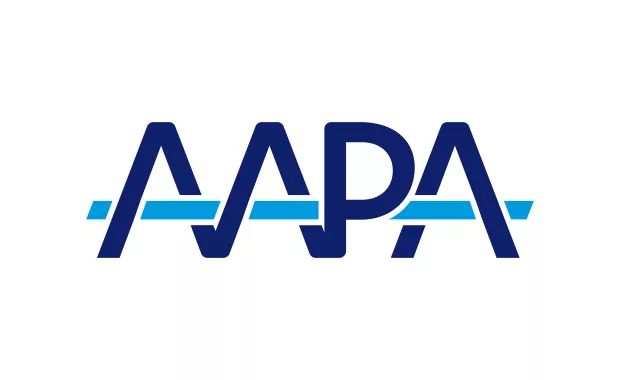Reluctant to Discuss Reimbursement? Let the Experts Help
Experts Michael Powe and John Bishop Answer PAs’ Questions
July 11, 2019
The rules surrounding reimbursement and payment policies are changing rapidly. Every practicing PA is responsible for understanding how to maximize their reimbursement, mitigating concerns about fraud and abuse, and articulating their value to employers in both economic and non-economic terms.
Get AAPA’s Essential Guide to PA Reimbursement
As the healthcare delivery system transforms into a value-based payment model, PAs must also be aware of how they can facilitate a high-performing, patient-centered delivery model with patients at the forefront of that care model. In order to help solidify understanding of these policies, reimbursement experts Michael Powe and John Bishop, PA, CPC, CPMA, CGSC, CPRS hopped on Huddle from June 18-25 to answer questions and engage in discussions on reimbursement.
 Vice President for Reimbursement & Professional Advocacy Powe, has been working on PA reimbursement issues for 27 years. His work encompasses healthcare policy issues, third-party payment, the Medicare and Medicaid programs, healthcare reform, value-based payment initiatives, and various state and federal regulatory agencies regarding reimbursement matters. Bishop, a PA with more than 40 years of clinical experience, became involved in the business side of healthcare early in his career and has more than 30 years of coding and reimbursement expertise. He is a certified professional medical coder with the AAPC (American Academy of Professional Coders), a certified medical auditor, and ICD-10 trainer.
Vice President for Reimbursement & Professional Advocacy Powe, has been working on PA reimbursement issues for 27 years. His work encompasses healthcare policy issues, third-party payment, the Medicare and Medicaid programs, healthcare reform, value-based payment initiatives, and various state and federal regulatory agencies regarding reimbursement matters. Bishop, a PA with more than 40 years of clinical experience, became involved in the business side of healthcare early in his career and has more than 30 years of coding and reimbursement expertise. He is a certified professional medical coder with the AAPC (American Academy of Professional Coders), a certified medical auditor, and ICD-10 trainer.
Here are a few excerpts from their recent Huddle Ask Me session on reimbursement.
–––
Q: Could you provide a status report on the prospects of attaining the Optimal Team Practice (OTP) goal to “authorize PAs to be directly reimbursed by all public and private insurers”? Has an economic analysis of changing the Medicare reimbursement policy been done? Would such a policy change be applied to both PAs and NPs? Does AAPA believe that such a change would retain the 85% valuation of medical services or would another level be considered? If services would be reimbursed directly, exactly how do you think that would work?
Powe: PAs are the only healthcare professionals authorized to bill Medicare for their services, but unable to receive direct reimbursement. NPs (PTs, social workers, OTs, psychologists, etc.) are already authorized to receive reimbursement directly from the Medicare program.
AAPA does not believe that there will be any cost to the Medicare program for this provision. Direct reimbursement will not change the Medicare reimbursement rate for PAs, nor will it impact PA scope of practice or the volume of services PAs deliver.
Direct reimbursement will likely be more applicable to PAs who work in rural health clinics, who work as independent contractors or for a staffing company, or are involved in some more innovative care models where more flexibility in payment is required. It is essential that hiring decisions are made based on clinical competence and not on which health professional has more flexibility in how reimbursement is received. However, most PAs, similar to most physicians and NPs, won’t opt for direct reimbursement and will continue to re-assign their Medicare reimbursement to their employers.
Authorizing PAs to receive direct reimbursement from public and commercial payers will likely increase PA visibility more broadly.
[Medicare’s “Incident to” Billing Hinders the Recognition and Assessment of PA Value]
Q: I work in family practice and deal with a wide range of patient populations. Our organization has been on a big push to do Annual Medicare Wellness exams. These seem more like administrative tasks rather than “physicals.” Most patients don’t understand them and want to talk about their chronic/acute problems. So I use our standard EMR template for the Medicare wellness exam and also put a statement in note stating that patient’s request to deal with their, let’s say, hypertension. I deal with the issue and document exam and findings. I then code a G0439 for the annual Medicare wellness exam, then 99213 or 99214 with modifier 25 to code for the hypertension issue. I have not had push back about this – is it ok to be doing both?
Bishop: Yes, you are correct regarding the Annual Medicare Wellness exams (AWVs). These were designed to be introduction, fact gathering, health risk assessment and to update any personalized prevention plans. These are NOT for any physical examination or dispensing Rx. If you have the time blocked for the patient to sit and discuss acute and chronic problems, then wonderful. But don’t bill the AWV. Instead, bill an episodic care visit 99212-99215 with the caveat that you must now document all the requirements for the CC, HPI, PFMH, ROS, appropriate physical examination, then finally a specific Plan of care. Treating their hypertension, performing an EKG, and ordering any labs must be specific to the HTN or any other entity.
Medicare will pay for an AWV service and a medically necessary service, e.g. level 3 established evaluation and management (E/M) office visit, Current Procedural Terminology code 99213, furnished during a single beneficiary encounter. It is important that the elements of the AWV not be replicated in the medically necessary service. You would have to append modifier -25 (significant, separately identifiable service) to the medically necessary E/M service (99213-25) to be paid for both services.
Two excellent Medicare resources on AWVs are Medicare Learning Network’s MLN Matters® MM7079 and Annual Wellness Visit Booklet. There are a couple of template-like pages that may be incorporated into your EMR or hard-copy medical record that may help sort out the different exam requirements. Also, make sure you separate these visits from the Well Women Visits G0101 and Q0091 for the PAP.
Finally, each set of notes needs to be crystal clear that there is no overlapping of information, physical examination and Plan of Care.
[AAPA’s Essential Guide to PA Reimbursement]
Q: I was under the impression if you accepted Medicare, the practice had to charge the same amount of money for same services for all, even a cash patient. Is this true?
Powe: As a PA, if you are a Medicare participating provider you must accept assignment. Accepting assignment means that you agree to accept Medicare’s approved reimbursement amount as full payment for a provided service and you can’t balance bill the patient for the difference between the Medicare-approved payment and your practice’s normal (typically higher) charge for that service.
PAs, like physicians, have the option to opt out of Medicare. Opt-out providers do not accept Medicare at all and have signed an agreement to be excluded from the Medicare program, generally for a period of a minimum of two years. This means you can charge Medicare patients rates higher than Medicare’s approved rates for services, but you must follow certain rules to do so.
- You must give the patient a private contract describing their charges and confirming that they understand they are responsible for the full cost of care and that Medicare will not reimburse.
- Opt-out providers do not bill Medicare for any services during the op out period.
Generally, health professionals and practices charge the agreed-upon, negotiated rate for Medicare and commercial patients. If by a “cash pay patient,” you mean a patient without health insurance, practices may have more flexibility in the charged amount. Cash paying patients might be charged a lower fee since the practice avoids the administrative work of submitting a claim to the insurer. However, some practices and hospitals charge non-insured patient a higher rate as compared to the rate charged to insured patients who have their rates negotiated by insurance companies and/or employers.
Most practices don’t want to establish a rate lower than that of their lowest paying insurers so as not to set a low rate precedent. In addition, most practices are wise to follow consistent charging guidelines to ensure the appearance of fairness to all patients. There may also be other legal issues you need to consider.
–––
Thanks to Powe and Bishop, several PAs were able to get personalized answers to their various reimbursement-related questions. Keep an eye out for future Ask Me sessions on Huddle if you’d like to receive expert advice on relevant topics.
More Resources
The Essential Guide to PA Reimbursement
Billing and Reimbursement: Online CME
Third-Party Reimbursement for PAs
Medicare Reimbursement
Thank you for reading AAPA’s News Central
You have 2 articles left this month. Create a free account to read more stories, or become a member for more access to exclusive benefits! Already have an account? Log in.



